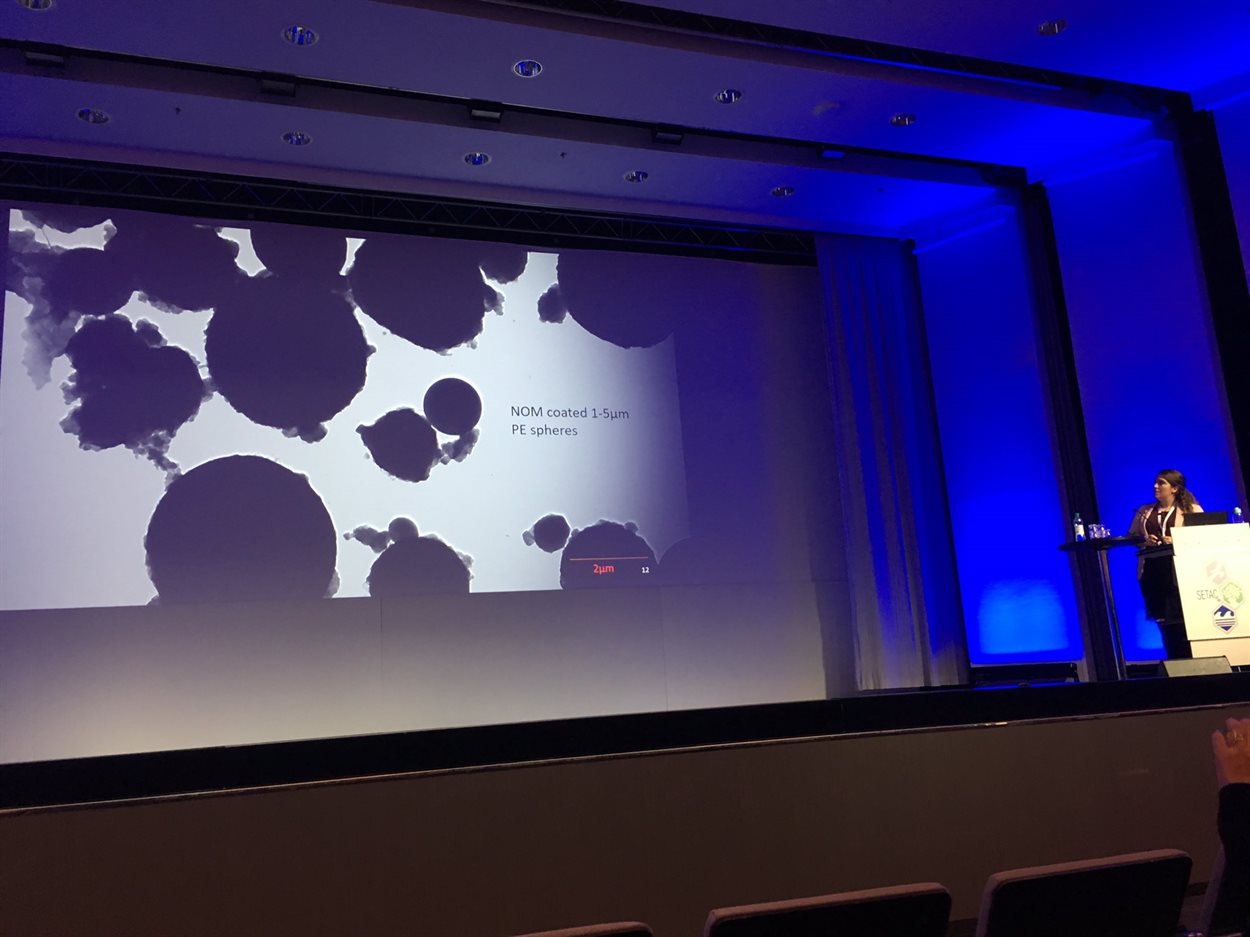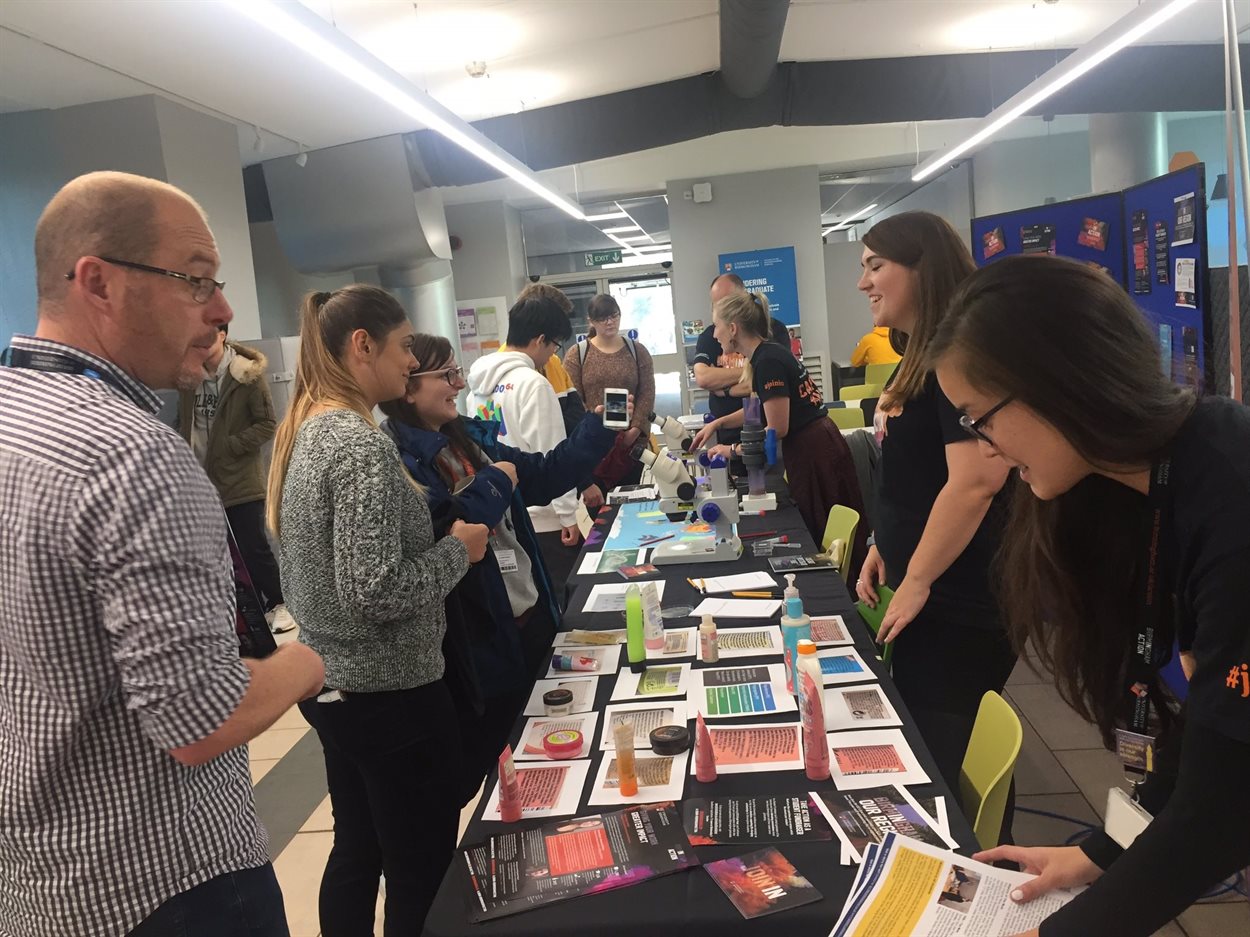Events and activities
British Science Festival 2022
Daphnia detectives research was showcased at the British Science Festival 2022 in Leicester, along with research highlights from colleagues and collaborators from the University of Birmingham and University of Leicester. Activities included an interactive table top escape room to explore the role of DNA in microplastics exposure survival, the chance to “pan for plastic”, and dancing Daphnia observations to look at plastic exposure effects all around the theme of “Small particles, big problem”.
Dancing Daphnia and disco lights
Using Daphnia, or water fleas, we can use standardised lab experiments to determine the effect that microplastics in freshwater systems can have on both the individual animals and the wider ecosystem. Using fluorescent particles with a UV light in combination with a microscope we can measure how many particles the animals have eaten and then link this to changes in their behaviour, for example, if they eat a lot of plastic do they move less? How could this affect them long term? Visitors got the chance to look at the difference in behaviour between Daphnia that had been exposed to plastics compared to the control (unexposed group) using fluorescent lights to check for particles.
Eye spy…a plastic particle
Microplastics can be extracted from different environments using a range of techniques, before being stained to help with their identification. Festival goers had the chance to explore how the Nile Red staining technique works in practice and through the usage of sieves and UV torch they could see if they are able to find the microplastics from the sand. They also got to peek through the microscope and see how this bright fluorescence transfers into smaller particles and finally to make an educated guess where the microplastic is in a comparison photo of a filter under normal light conditions and fluorescence mode (to varying degrees of success)!
You’re more like a waterflea than you realise...
Microplastics are everywhere, with recent research finding four out of five of us have microplastic particles in our blood! How these plastics effect our biology however is still unknown. Using genetically identical waterfleas, much like twins, we can figure out how microplastic exposure effects DNA and how our genes work. Visitors got the chance to put their detective skills to the test to solve the DNA escape room to figure out which Daphnia could survive the plastic pollution episode!
The event was a huge success with a great number of attendees! Visitors to the “Small particles, big problem” activities were rewarded with a Daphnia detectives magnet from the “learning line” where they could exchange something they learned at the event for a magnet.
“What a great science stall! Really interactive and informative with great friendly staff! (Volunteers?) Thank you!”
“It was cool to see a more scientific approach to microplastics over general info”
“Great explanation of the science! The animals were very interesting. Its good to see the research going into important issues!”
“Exciting and informative! Thank you for your great effort and positive energy!”
“Informative and easy to understand! Thanks for making science fun and friendly”
“Fantastic display and activities and knowledgeable and interesting people! Thank you for a brilliant time!”
Other events...

Dr Katie Reilly presenting some of the research on the impacts of microplastics at the Society for Environmental Toxicity and Chemistry European conference in Helsinki

The launch of the Birmingham in Action campaign

Interactive activities as part of the Birmingham in Action campaign, including microplastic detection and exposed water flea observations